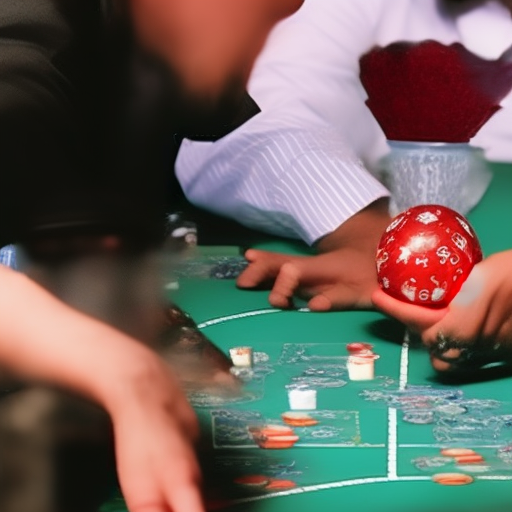The art of small ball bluffing is an integral part of any successful strategy in poker. Although it is difficult to master, putting in the time and effort to learn this skill may just be worth it – small lies can indeed pay off! Whether you’re a poker newbie or a seasoned veteran, read on to learn why sometimes the most seemingly insignificant details can lead to your grandest victories!
1. What is Small Ball Bluffing?
Small Ball Bluffing is a popular poker strategy that involves making small bets or raises with the aim of deceiving opponents into thinking you have a weaker hand than you actually do. As a result, your opponents may make a larger bet or raise, which can result in them losing chips, and you winning the pot.
Small Ball Bluffing is particularly effective in No Limit Texas Hold’em, where hands can be won or lost on a single bet. For instance, imagine you are dealt pocket 8s, and the flop shows 3, 4, A. You decide to make a small bet, which your opponent calls. The turn shows a 2, which doesn’t improve your hand, but you continue to make another small bet. Your opponent raises, thinking you have a weak hand, and you decide to go all-in, making him think you have something better than you actually do. The strategy pays off as your opponent folds, and you win the pot! As you can see, Small Ball Bluffing can be a game-changer, allowing you to dictate the pace of the game and control the outcome of each hand.
2. The Benefits of Bluffing
Bluffing isn’t always about deception or trickery. In fact, it can be a useful tool when used correctly. Below are some benefits of bluffing:
- It can help you win: In games like poker, bluffing can be the difference between winning and losing. If you have a weak hand, bluffing can convince your opponents that you have a strong one, causing them to fold and allowing you to take the pot.
- It can improve your negotiation skills: Bluffing can be useful in business negotiations. If you don’t show your hand too early, you may be able to get a better deal.
- It can increase your confidence: Successfully bluffing can give you a sense of accomplishment and boost your confidence. It can also make you more comfortable taking risks in the future.
One real-life example of effective bluffing comes from the world of sports. In a soccer match, a player may fake a shot in order to get the goalie to move in a certain direction, giving them a better opportunity to score. While it may not deceive the goalie entirely, it can still improve the likelihood of success. Bluffing can be used in many situations, and by using it wisely, you can gain a competitive edge.
3. Learning How to Bluff
Bluffing is a critical skill in poker. It’s a tactic used to deceive your opponents into believing you have better cards than you really do. However, it’s essential to know when to bluff and how to do it effectively. Here are some tips on mastering the art of bluffing:
1. Set the stage: Create a storyline that makes your bluff convincing. If you have been playing tight and folding often, your opponents will expect you to have a good hand when you suddenly don’t. Use this to your advantage by telling a story about how you have a strong hand and how you’re just trying to slow play, or you’re scared they have a stronger hand. The goal is to make your bluff plausible and believable, so your opponents will fold.
2. Observe your opponents: Keep an eye on your opponents to see if they are giving off any tells. Their facial expressions, body language, and betting patterns can give you clues as to whether they have a strong or weak hand. If they are hesitating or looking nervous, it might be a sign that they are not confident in their hand. If they are betting aggressively, it could mean they have a better hand than you. Use this information to decide when to bluff or fold.
Remember, bluffing can be a double-edged sword. If you bluff too often, your opponents will catch on, and your bluffs will lose effectiveness. Always approach bluffing with caution, and don’t be afraid to fold if your bluff doesn’t work out. With practice and observation, you’ll be able to become a master bluffer and take your poker game to the next level. Batting up to the plate, the little lie may be small but the consequences can be game-changing. In poker, and in life, small ball bluffing can be a useful tool to have in your pocket when times are tough. As in any game, remember that these techniques should be used sparingly and carefully – but with a bit of confidence and the right amount of finesse, the art of small ball bluffing can pay off.